Call Today to Schedule an Appointment: 212-319-5282
Allergy, Asthma and Sinusitis P.C
 Our practice, Advanced Allergy, Asthma and Sinusitis P.C., is located in the heart of Manhattan, New York, just a block away from Grand Central Station. It is a new type of practice dedicated to providing the most up-to-date treatment for adult and pediatric patients with allergy, asthma, sinus disease or disorders of the immune system. We offer world-class expertise and the highest standards in diagnostic testing and treatment for allergy, asthma and sinus disease.
Our practice, Advanced Allergy, Asthma and Sinusitis P.C., is located in the heart of Manhattan, New York, just a block away from Grand Central Station. It is a new type of practice dedicated to providing the most up-to-date treatment for adult and pediatric patients with allergy, asthma, sinus disease or disorders of the immune system. We offer world-class expertise and the highest standards in diagnostic testing and treatment for allergy, asthma and sinus disease.
Our treatment plans are based upon the latest practice parameters and recommendations in our field as published by the American Academy of Allergy, Asthma and Immunology and the American College of Allergy, Asthma and Immunology.
Best Allergist NYC Midtown
At Advanced Allergy, Asthma and Sinusitis P.C., we make extraordinary efforts to stay current in our field by attending relevant regional, national and international conferences and reviewing the current literature, textbooks and online databases. Dr. Boyan Hadjiev is fellowship-trained and board-certified in Internal Medicine and Allergy and Immunology. We firmly believe that having a board certification makes the physician more proficient and knowledgeable in the field of allergy/immunology and sinus disease.
Please visit our Common Allergic Problems page for a list of conditions we treat and their descriptions.
Telemedicine Services
Visit our main site at www.drsneeze.com
Blog Posts are Below:
Immune System Disorders: Recognizing the Signs
When something goes wrong, and the immune system becomes underactive or overactive, it can lead to immune system disorders that may significantly affect your health. Your immune system is your body’s defense mechanism — a complex network of cells, tissues, and organs that protect you from infections and diseases. When it functions properly, it fights off harmful invaders like bacteria, viruses, and allergens.
Understanding the early warning signs of immune dysfunction is crucial for timely diagnosis and treatment. In this guide, we’ll explore the different types of immune system disorders, common symptoms to watch for, and when to seek help from a specialist.

Types of Immune System Disorders
Immune system disorders fall into several categories based on how the immune system is affected:
- Primary Immunodeficiency Disorders: These are inherited conditions where part of the immune system is missing or doesn’t function properly. They are often diagnosed in childhood.
- Secondary (Acquired) Immunodeficiencies: These develop due to external factors such as infections (like HIV), chemotherapy, or chronic illnesses.
- Autoimmune Diseases: In these conditions, the immune system mistakenly attacks the body’s own healthy tissues. Examples include lupus, rheumatoid arthritis, and multiple sclerosis.
- Allergic Conditions: An overreaction of the immune system to harmless substances, such as pollen, dust, or certain foods, resulting in allergies or asthma.
Early Signs of an Immune System Disorder
Recognizing the early symptoms of immune dysfunction can help you get treatment before complications arise. Common warning signs include:
- Frequent Infections: More than four ear infections a year, repeated pneumonia, or chronic sinus infections may indicate an underlying immune issue.
- Persistent Fatigue: Feeling constantly tired or drained can be a sign that your immune system is under stress or not functioning properly.
- Delayed Growth or Development (in children): Children with immune issues may fail to grow or gain weight as expected.
- Digestive Problems: Chronic diarrhea, cramping, or loss of appetite may suggest inflammation caused by immune dysfunction.
- Inflamed or Painful Joints: Joint pain, stiffness, or swelling could be related to autoimmune activity.
- Skin Rashes or Hives: Persistent or unexplained skin issues may signal an overactive immune response.
How Are Immune Disorders Diagnosed?
If you or your child are experiencing ongoing symptoms, a specialist may perform the following evaluations:
- Medical History & Physical Exam: Your physician will evaluate your symptoms, health history, and any recurring infections.
- Blood Tests: These tests measure immune cell counts, antibody levels, and signs of inflammation or autoimmune activity.
- Allergy Testing: Identifying environmental or food allergies that could be triggering immune responses.
- Imaging & Biopsies: In certain cases, imaging studies or tissue biopsies may be needed to evaluate organ involvement or inflammation.
Treatment Options for Immune System Disorders
Treatment depends on the type and severity of the disorder. Common approaches include:
- Immunoglobulin Therapy: Replaces missing antibodies in patients with immunodeficiencies.
- Anti-inflammatory or Immunosuppressant Medications: Used for autoimmune diseases to calm the immune response.
- Targeted Biologic Therapies: Advanced treatments that block specific immune system signals involved in disease processes.
- Allergy Management: Including antihistamines, corticosteroids, or allergy immunotherapy to reduce overactive immune responses.
- Lifestyle Adjustments: Diet, stress management, sleep, and infection prevention are all essential in managing immune disorders.
When to See a Specialist
If you experience frequent infections, unexplained fatigue, or symptoms that don’t improve with routine care, it’s time to consult a specialist. Immune system disorders are manageable — especially when diagnosed early.
Contact an Allergy and Immunology Specialist in NYC
If you’re concerned about a possible immune system disorder, schedule a consultation with Dr. Boyan Hadjiev at:
Allergy, Asthma and Sinusitis P.C
Boyan Hadjiev, MD
30 East 40th Street
Suite 1200
New York, NY 10016
212-319-5282
Early detection and personalized treatment can dramatically improve quality of life for those living with immune system disorders. Take the first step toward answers and relief today.
What to Expect During an Allergy Consultation
An allergy consultation is the first step toward identifying allergic triggers and developing a personalized treatment plan for long-term relief. If you’re struggling with persistent sneezing, nasal congestion, skin irritation, or unexplained coughing, it’s time to consult an allergy specialist. Whether you’re dealing with seasonal allergies, food sensitivities, asthma, or chronic sinus issues, understanding what to expect during your visit can help you feel more prepared and at ease.
Here’s a detailed breakdown of what typically happens during an allergy consultation — especially at a specialized clinic like Allergy, Asthma and Sinusitis P.C. in New York City.

Step 1: A Comprehensive Medical History Review
Your allergist will begin by gathering detailed information about your symptoms and health history. Be prepared to answer questions like:
- When did your symptoms start?
- Do they occur seasonally or year-round?
- Do certain environments, foods, or situations trigger symptoms?
- Are there any other medical conditions or allergies in your family?
- Have you tried any medications, and how well did they work?
The more specific you can be, the easier it is to identify patterns that suggest underlying allergy-related conditions.
Step 2: Physical Examination
A physical exam helps your allergist assess any visible signs of allergic reaction or inflammation. This might include:
- Checking your nasal passages for swelling or blockages
- Listening to your lungs for wheezing or breathing irregularities
- Examining your skin for rashes, hives, or eczema
- Evaluating your eyes for redness or puffiness
These observations guide your allergist in selecting the most appropriate diagnostic tests.
Step 3: Allergy Testing (If Needed)
If your symptoms suggest an allergic response, your allergist may recommend one or more of the following tests:
- Skin Prick Testing: Small amounts of allergens are applied to your skin to check for reactions.
- Intradermal Testing: Used when skin prick testing is inconclusive, involving slightly deeper injections under the skin.
- Blood Tests (IgE Testing): Measures your immune system’s response to specific allergens.
- Patch Testing: Used for contact dermatitis, where allergens are applied to patches placed on your skin for 48 hours.
Your allergist will determine which test is appropriate based on your symptoms, medical history, and current medications.
Step 4: Diagnosis and Explanation
Once test results are available — often the same day for skin tests or within a few days for blood tests — your allergist will explain:
- Which allergens you’re reacting to
- The severity of each reaction
- How your symptoms relate to the test findings
This explanation helps connect the dots between your daily experiences and the allergens affecting your health.
Step 5: Personalized Treatment Plan
Your allergist will create a treatment strategy tailored to your lifestyle and the type/severity of your allergies. This may include:
- Medications: Antihistamines, nasal sprays, inhalers, or epinephrine (for severe reactions)
- Allergen Avoidance Tips: Practical ways to reduce exposure in your home, workplace, and daily routine
- Allergy Immunotherapy: Allergy shots or drops that help reduce your immune response over time
- Asthma Management: If asthma is involved, your treatment will include proper inhaler use and monitoring plans
Education is a major component of your consultation. Your allergist will make sure you understand how to manage symptoms and when to seek emergency care.
What to Bring to Your Appointment
To make the most of your allergy consultation, come prepared with:
- A list of your symptoms and how long they’ve lasted
- Any medications you’re currently taking (including over-the-counter)
- Details about your living and working environment
- Records of past allergic reactions or previous test results
Wearing short sleeves can also make skin testing more convenient.
Next Steps After the Consultation
After your initial visit, your allergist may schedule follow-up appointments to monitor your progress, adjust treatment, or begin immunotherapy. With proper diagnosis and management, you’ll be on your way to living more comfortably — and symptom-free.
Schedule Your Allergy Consultation in NYC
If you’re ready to get answers and take control of your health, schedule a consultation with Dr. Boyan Hadjiev at:
Allergy, Asthma and Sinusitis P.C
Boyan Hadjiev, MD
30 East 40th Street
Suite 1200
New York, NY 10016
212-319-5282
Don’t let allergies disrupt your daily life. A professional allergy evaluation can provide the clarity and relief you’ve been looking for.
Exploring Advanced Allergy Testing Methods
In New York City, where allergen exposure is constant and varied, understanding advanced allergy testing options is key. Allergies can impact every aspect of your life — from what you eat and where you go, to how well you sleep. If you’ve been dealing with persistent symptoms like sneezing, congestion, rashes, or even digestive issues, pinpointing the exact cause is the first step toward effective relief. Fortunately, modern allergy testing methods have come a long way, offering highly accurate insights with less discomfort and faster results. Here’s a comprehensive look at today’s most effective testing techniques and what you can expect during the process.

Why Allergy Testing Is Important
Accurate allergy testing identifies the substances your body is reacting to — whether they’re environmental, food-related, or chemical. Once you know your specific triggers, your allergist can develop a personalized treatment plan, which may include medication, avoidance strategies, or immunotherapy.
Without testing, you’re left guessing — and often living with symptoms longer than necessary.
Advanced Allergy Testing Methods
Today’s allergy tests go far beyond the basics. Here are the most widely used and effective methods now offered in leading clinics:
1. Skin Prick Testing (SPT)
One of the most common and reliable methods for diagnosing allergies, skin prick testing involves placing tiny amounts of allergens just under the skin’s surface.
- What it tests: Common environmental allergens (dust mites, pollen, mold, pet dander) and some food allergens
- How it works: Allergens are applied to the skin with a small lancet. If you’re allergic, a small raised bump or redness will appear.
- Time to results: Within 15–20 minutes
2. Intradermal Testing
This method is more sensitive than the skin prick test and may be used when SPT results are negative but suspicion of an allergy remains high.
- What it tests: Primarily environmental allergens
- How it works: A small amount of allergen is injected just under the skin.
- Time to results: 15–20 minutes
3. Specific IgE Blood Testing
Also known as serum IgE testing, this blood test measures your immune system’s response to individual allergens by detecting allergen-specific antibodies.
- What it tests: Foods, environmental allergens, insect venom, medications
- How it works: A blood sample is taken and sent to a lab for analysis.
- Best for: Patients who cannot stop antihistamines or those with severe skin conditions
- Time to results: A few days to one week
4. Component-Resolved Diagnostics (CRD)
An advanced version of IgE blood testing, CRD analyzes specific proteins within allergens to determine the risk and severity of reactions.
- What it tests: Primarily food and insect venom allergies
- Why it’s advanced: Helps distinguish between a mild sensitivity and a potentially life-threatening reaction
- Best for: Complex food allergies and those considering immunotherapy
5. Patch Testing
This test identifies delayed allergic reactions that affect the skin — typically contact dermatitis.
- What it tests: Metals (like nickel), fragrances, latex, cosmetics, preservatives
- How it works: Allergens are applied to patches, which are worn on the back for 48 hours.
- Best for: Chronic rashes and eczema of unknown cause
Choosing the Right Testing Method
Your allergist will recommend a testing method based on:
- Your symptoms (respiratory, skin, digestive, etc.)
- Suspected triggers (food vs. environmental vs. chemical)
- Your health history, medications, and lifestyle
Sometimes, a combination of tests is needed to arrive at a precise diagnosis.
What to Expect During Testing
Allergy testing is safe, and while some methods cause mild itching or redness, most are well-tolerated. Preparation may include:
- Stopping antihistamines 3–7 days before testing (your provider will advise)
- Bringing a list of symptoms and suspected triggers
- Wearing comfortable clothing if skin testing is planned
When to Seek Advanced Allergy Testing
You should consider advanced allergy testing if you:
- Have persistent symptoms with no clear cause
- Experience frequent sinus infections, eczema, or unexplained asthma
- Suspect food allergies or intolerances
- Have tried over-the-counter medications without relief
Schedule Your Allergy Evaluation in NYC
If you’re struggling with undiagnosed allergy symptoms or want a more accurate diagnosis, advanced testing can help you finally get answers — and the relief you deserve. Schedule your evaluation with Dr. Boyan Hadjiev at:
Allergy, Asthma and Sinusitis P.C
Boyan Hadjiev, MD
30 East 40th Street
Suite 1200
New York, NY 10016
212-319-5282
Modern allergy testing is fast, precise, and a game-changer in helping you breathe, eat, and live more comfortably. Take the first step today.
How to Improve Indoor Air Quality for Allergy Relief
 How can you improve air quality for allergy relief? When living in a bustling city like New York, it’s easy to focus on outdoor pollution and forget that indoor air can be just as problematic — especially for those with allergies. In fact, indoor air quality can significantly impact allergy symptoms year-round.
How can you improve air quality for allergy relief? When living in a bustling city like New York, it’s easy to focus on outdoor pollution and forget that indoor air can be just as problematic — especially for those with allergies. In fact, indoor air quality can significantly impact allergy symptoms year-round.
Top allergists stress the importance of maintaining clean, allergen-free indoor environments to reduce allergic reactions and improve overall health. Here’s a complete guide to enhancing your indoor air quality for better allergy relief.
Why Indoor Air Quality Matters for Allergy Sufferers
Indoor air often contains allergens like dust mites, pet dander, mold spores, and volatile organic compounds (VOCs) from cleaning products or building materials. Poor air quality can lead to:
- Increased sneezing, coughing, and congestion
- Worsening of asthma symptoms
- Eye, nose, and throat irritation
- More frequent sinus infections
- Fatigue and poor sleep quality
For allergy sufferers, improving the air inside your home or workplace can dramatically reduce symptoms and improve overall well-being.
Effective Strategies to Improve Indoor Air Quality
Improving your indoor environment doesn’t have to be complicated. A few targeted strategies can make a major difference.
1. Use HEPA Filters
High-Efficiency Particulate Air (HEPA) filters trap tiny airborne particles, including allergens, and are essential for:
- Air purifiers
- Vacuum cleaners
- Heating and cooling systems (HVAC units)
Allergists recommend using HEPA-filtered devices throughout your home, especially in bedrooms and living areas.
2. Keep Humidity Levels in Check
Dust mites and mold thrive in humid environments. Maintain indoor humidity between 30% and 50% by:
- Using a dehumidifier during the warmer months
- Ventilating bathrooms and kitchens to reduce moisture buildup
- Fixing leaks promptly to prevent mold growth
3. Regular Cleaning Routines
Routine cleaning can drastically reduce the number of allergens in your home:
- Vacuum carpets and rugs at least once a week using a HEPA-filter vacuum.
- Wash bedding in hot water weekly to kill dust mites.
- Dust surfaces with a damp cloth to trap allergens instead of scattering them into the air.
4. Minimize Chemical Irritants
Household cleaning products, scented candles, and air fresheners can release VOCs that worsen allergies. To minimize chemical exposure:
- Choose fragrance-free and non-toxic cleaning supplies.
- Ventilate the space well when painting or remodeling.
- Consider using natural alternatives like vinegar and baking soda for cleaning.
5. Control Pet Dander
If you have pets, take extra steps to reduce allergens:
- Keep pets out of bedrooms and off upholstered furniture.
- Bathe and groom pets regularly.
- Use HEPA filters and clean frequently to remove pet hair and dander.
6. Improve Ventilation
 Good ventilation helps remove allergens and bring in fresh air. Tips include:
Good ventilation helps remove allergens and bring in fresh air. Tips include:
- Opening windows when outdoor air quality is good (check local AQI reports).
- Using exhaust fans in bathrooms and kitchens.
- Installing air exchange systems if you live in a tightly sealed building.
Additional Tips for Allergy Relief at Home
- Remove shoes before entering your home to avoid tracking in allergens.
- Replace curtains with washable blinds to minimize dust collection.
- Encourage a no-smoking policy indoors to eliminate tobacco smoke exposure.
With a few lifestyle changes and strategic improvements, you can dramatically enhance your indoor air quality and enjoy noticeable allergy relief.
Improve Indoor Air Quality for Allergy Relief: Contact NYC’s Allergy Specialist for Expert Advice
If you’re struggling with allergy symptoms despite your best efforts at home, professional help can make all the difference. Schedule an appointment with Dr. Boyan Hadjiev at:
Allergy, Asthma and Sinusitis P.C.
Boyan Hadjiev, MD
30 East 40th Street
Suite 1200
New York, NY 10016
212-319-5282
Take the first step toward a healthier, allergy-free environment with the support of NYC’s top allergy expert. Breathe easier — starting today!
Pediatric Allergy and Asthma: What Parents Need to Know
 Understanding pediatric allergy and asthma management is essential for helping your child thrive, and early intervention can make a world of difference. Raising a child with allergies or asthma can be overwhelming, especially in a busy city like New York. From seasonal pollen to indoor allergens and air pollution, the environment presents constant challenges.
Understanding pediatric allergy and asthma management is essential for helping your child thrive, and early intervention can make a world of difference. Raising a child with allergies or asthma can be overwhelming, especially in a busy city like New York. From seasonal pollen to indoor allergens and air pollution, the environment presents constant challenges.
Common Pediatric Allergies and Asthma Triggers
Children can be sensitive to a variety of allergens and environmental factors. Some of the most common triggers include:
- Environmental Allergens: Pollen, mold, pet dander, and dust mites are major contributors to allergic reactions.
- Food Allergies: Peanuts, tree nuts, milk, eggs, soy, wheat, fish, and shellfish are among the most common food allergens.
- Air Pollution: Exposure to traffic emissions and industrial pollutants can worsen asthma symptoms.
- Weather Changes: Cold, dry air in the winter and humid conditions in the summer can trigger asthma flare-ups.
- Viral Infections: Common colds can easily escalate into asthma attacks in sensitive children.
Recognizing Symptoms Early
Early recognition of allergy and asthma symptoms is key to managing them effectively. Watch for signs such as:
- Persistent coughing, especially at night
- Wheezing or shortness of breath during play or physical activity
- Frequent sneezing, nasal congestion, or runny nose
- Itchy, watery eyes
- Complaints of chest tightness or feeling tired more easily than peers
If you notice these symptoms, it’s important to seek evaluation and treatment promptly.
Diagnosis and Testing for Pediatric Patients
Proper diagnosis involves a combination of medical history, physical examination, and specialized tests. Allergy testing can identify specific environmental or food allergens triggering your child’s symptoms, while pulmonary function tests may assess asthma severity.
Accurate testing ensures a treatment plan that is customized to your child’s individual needs — reducing guesswork and offering real solutions.
Effective Treatment Options
A comprehensive treatment plan can help your child live an active, healthy life with minimal symptoms. Options include:
- Allergy Medications: Antihistamines, nasal sprays, and eye drops can control allergy symptoms.
- Asthma Inhalers: Quick-relief inhalers and long-term controller inhalers help manage breathing issues.
- Immunotherapy (Allergy Shots): Over time, allergy shots can help reduce sensitivity to allergens.
- Emergency Action Plans: An individualized plan for managing severe allergic reactions or asthma attacks can save lives.
Helping Your Child Thrive
In addition to medications, small changes at home can make a big difference in managing pediatric allergy and asthma symptoms:
- Use hypoallergenic bedding and wash linens in hot water weekly.
- Minimize exposure to pets if dander is a known trigger.
- Monitor pollen counts and limit outdoor activities during peak allergy seasons.
- Maintain indoor air quality with HEPA filters and dehumidifiers.
- Educate your child about recognizing symptoms and using inhalers or medications properly.
With the right care, most children with allergies or asthma can fully participate in school, sports, and social activities without limitations.
Contact NYC’s Pediatric Allergy and Asthma Specialist
If your child is struggling with allergies or asthma, expert care can make all the difference. Schedule a consultation with Dr. Boyan Hadjiev at:
Allergy, Asthma and Sinusitis P.C
Boyan Hadjiev, MD
30 East 40th Street
Suite 1200
New York, NY 10016
212-319-5282
Give your child the best chance at a healthier, happier life by working with an experienced NYC allergist who truly understands pediatric care.
The Link Between Allergies and Sinus Infections
Is there a link between allergies and sinus infections? For many New Yorkers, seasonal allergies are more than just a nuisance — they can lead to chronic sinus problems that severely impact quality of life. If you frequently experience sinus infections, your allergies might be playing a bigger role than you realize. Dr. Boyan Hadjiev, better known as “Dr. Sneeze,” is NYC’s top allergist and shares expert insights on how allergies and sinus infections are closely connected — and how you can break the cycle.
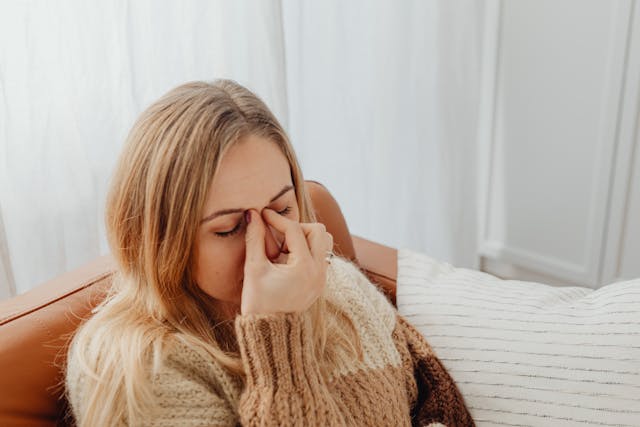
How Allergies Can Lead to Sinus Infections
When you suffer from allergies, your immune system overreacts to harmless substances like pollen, pet dander, mold, and dust mites. This overreaction causes inflammation in the nasal passages, leading to swelling, mucus production, and congestion.
Here’s how allergies can trigger sinus infections:
- Swollen Nasal Tissues: Allergy-induced swelling blocks normal mucus drainage from the sinuses, creating a moist environment where bacteria can thrive.
- Increased Mucus Production: Allergies cause excessive mucus production, which can become trapped and infected.
- Weakened Immune Response: Constant allergic reactions can weaken your body’s ability to fight off infections effectively.
Signs That Allergies Are Leading to Sinus Infections
Recognizing the connection between your allergies and sinus infections can help you seek timely treatment. Warning signs include:
- Frequent or recurrent sinus infections (more than four times a year)
- Sinus infections that last longer than 10 days or worsen after initial improvement
- Persistent nasal congestion, postnasal drip, and facial pressure during allergy seasons
- Difficulty breathing through the nose combined with allergy symptoms like sneezing and itchy eyes
Preventing Allergy-Related Sinus Infections
Breaking the cycle of allergies leading to sinus infections requires a proactive approach. Dr. Sneeze recommends the following strategies:
1. Control Your Allergies
Managing allergies is the first line of defense against sinus infections. Treatment options include:
- Antihistamines: Help reduce allergic reactions and nasal inflammation.
- Nasal Corticosteroids: Relieve nasal swelling and promote normal sinus drainage.
- Allergy Immunotherapy (Allergy Shots): Gradually desensitize your immune system to specific allergens, providing long-term relief.
2. Practice Good Nasal Hygiene
Keeping your nasal passages clear can prevent mucus buildup and infection:
- Use saline nasal sprays or perform nasal irrigation with a neti pot to flush out allergens and mucus.
- Keep indoor air clean with HEPA filters and maintain proper humidity levels.
- Avoid exposure to known allergens whenever possible, especially during high pollen seasons.
3. Seek Early Treatment for Allergy Symptoms
Don’t wait until symptoms worsen. Early treatment from an allergist like Dr. Sneeze can help control inflammation before it leads to infection. If you notice a pattern of sinus infections tied to your allergy flare-ups, it’s time for a comprehensive allergy evaluation.
Treatment Options for Sinus Infections
If sinus infections do occur, effective treatment can prevent complications:
- Decongestants: Help reduce sinus swelling and promote drainage.
- Antibiotics: Prescribed if a bacterial infection is confirmed and symptoms are severe or persistent.
- Advanced Procedures: For chronic sinusitis, minimally invasive options like balloon sinuplasty can restore proper sinus drainage.
Why See an Allergist for Allergy-Related Sinus Problems?
Seeing a specialist like Dr. Sneeze ensures a complete evaluation of both your allergies and sinus health. At Allergy, Asthma and Sinusitis P.C., you’ll receive:
- Comprehensive allergy and sinus diagnostics
- Customized treatment plans based on your specific triggers and symptoms
- Access to the latest therapies to prevent future infections and improve quality of life
The Link Between Allergies and Sinus Infections: Contact NYC’s Leading Allergy and Sinus Expert
For many New Yorkers, seasonal allergies are more than just a nuisance — they can lead to chronic sinus problems that severe
If you’re tired of the endless cycle of allergies and sinus infections, expert help is just a call away. Schedule an appointment with Dr. Boyan Hadjiev, “Dr. Sneeze,” at:
Allergy, Asthma and Sinusitis P.C
Dr. Boyan Hadjiev
30 East 40th Street
Suite 1200
New York, NY 10016
212-319-5282
Take control of your allergies and sinus health today with personalized care from NYC’s top allergist. Breathe easier, feel better, and live your best life!
Sinusitis: Causes, Symptoms, and Treatment Options
In this guide, we’ll explain the causes, symptoms, and most effective treatment options for sinusitis, helping you find lasting relief. Sinusitis is a common yet often misunderstood condition that affects millions of people each year. It can lead to persistent nasal congestion, headaches, facial pressure, and even difficulty breathing. For residents of New York City, sinusitis can be particularly challenging due to environmental pollutants, allergens, and seasonal weather changes.

What Is Sinusitis?
Sinusitis, or a sinus infection, occurs when the tissues lining the sinuses become inflamed. This inflammation can cause blockages, leading to mucus buildup, bacterial growth, and uncomfortable symptoms.
Sinusitis can be classified into different types based on duration:
- Acute Sinusitis: Symptoms last less than four weeks, often caused by viral infections like the common cold.
- Chronic Sinusitis: Symptoms persist for more than 12 weeks and are often linked to allergies, nasal polyps, or structural abnormalities.
- Recurrent Sinusitis: Multiple episodes of sinusitis occur throughout the year, often indicating an underlying immune or allergy-related issue.
What Causes Sinusitis?
Several factors can contribute to sinusitis, including:
- Viral Infections: The most common cause, typically following a cold or flu.
- Bacterial Infections: When sinus blockages persist, bacteria can grow, leading to bacterial sinusitis.
- Allergies: Seasonal allergies can cause nasal inflammation, increasing the risk of sinus infections.
- Environmental Irritants: NYC air pollution, cigarette smoke, and strong odors can trigger sinus inflammation.
- Nasal Polyps: Growths in the nasal passages that obstruct proper sinus drainage.
- Deviated Septum: A structural issue that affects airflow and mucus drainage.
Symptoms of Sinusitis
Sinusitis symptoms can vary in severity but commonly include:
- Persistent nasal congestion or stuffiness
- Facial pain or pressure, especially around the forehead, cheeks, and eyes
- Thick nasal discharge (yellow or green in color)
- Postnasal drip (mucus dripping down the throat)
- Headache, particularly in the morning
- Bad breath or loss of smell
- Coughing that worsens at night
- Fatigue due to poor sleep caused by congestion
If symptoms persist for more than 10 days, or if they worsen after initially improving, it may indicate bacterial sinusitis, which could require medical treatment.
Effective Treatment Options for Sinusitis
Dr. Sneeze provides a range of effective treatments for sinusitis, based on the severity and underlying causes of your condition:
1. Medications for Symptom Relief
- Nasal Decongestants: Help reduce nasal swelling and improve drainage.
- Antihistamines: Useful if allergies are a contributing factor.
- Nasal Corticosteroids: Reduce inflammation in the nasal passages.
- Antibiotics: Prescribed only for bacterial sinus infections that don’t resolve on their own.
2. Allergy Treatment for Sinus Relief
If allergies are triggering or worsening your sinusitis, Dr. Sneeze may recommend:
Allergy Testing: Identifies specific allergens contributing to sinus issues.
- Immunotherapy (Allergy Shots): Helps reduce sensitivity to allergens over time.
- Lifestyle Modifications: Recommendations for reducing allergen exposure in your home and workplace.
3. Advanced Sinus Treatments
For chronic or severe cases, additional treatments may be necessary:
- Saline Nasal Irrigation: Rinses away irritants and mucus buildup using a neti pot or saline spray.
- Balloon Sinuplasty: A minimally invasive procedure that opens blocked sinuses for better drainage.
- Surgical Intervention: In rare cases, surgery may be required to remove nasal polyps or correct a deviated septum.
Preventive Measures to Reduce Sinus Infections
Taking steps to prevent sinusitis can reduce the frequency and severity of symptoms. Top allergists in NYC recommend:
- Using a humidifier to keep nasal passages moist during dry winter months.
- Avoiding cigarette smoke and air pollution whenever possible.
- Staying hydrated to help thin mucus and promote proper drainage.
- Practicing good hand hygiene to prevent colds and viral infections.
- Managing allergies effectively to reduce nasal inflammation.

When to See an Allergist for Sinus Issues
If you suffer from frequent sinus infections, persistent nasal congestion, or sinus headaches, seeing an allergist can help identify the underlying causes and provide targeted treatment. A experienced and qualified allergist will offer:
- Comprehensive sinus and allergy testing.
- Personalized treatment plans for lasting relief.
- Minimally invasive procedures to improve sinus drainage.
Sinusitis: Causes, Symptoms, and Treatment Options
: Contact NYC’s Leading Sinus and Allergy Specialist
Don’t let sinusitis disrupt your life. With expert care, you can breathe easier and prevent recurring infections. Dr. Boyan Hadjiev, MD, “Dr. Sneeze,” is dedicated to helping NYC residents find long-term relief from sinus issues. Schedule an appointment today:
Allergy, Asthma and Sinusitis P.C
Boyan Hadjiev, MD
30 East 40th Street
Suite 1200
New York, NY 10016
212-319-5282
Take control of your sinus health with the expertise of NYC’s leading allergist. Book your appointment today and start feeling better!
Managing Asthma in NYC: A Guide to Breathing Easier
What are the best ways to go about managing asthma in NYC? Living in a big city comes with many benefits, but for those with asthma, urban life can also present unique challenges. From air pollution and seasonal allergens to stress and crowded spaces, city environments can trigger or worsen asthma symptoms. However, with the right management strategies, you can reduce flare-ups and maintain control over your condition.

Boyan Hadjiev, MD, widely known as “Dr. Sneeze,” is a top NYC allergist specializing in asthma care. In this guide, he shares expert insights on managing asthma effectively in an urban setting, so you can breathe easier and enjoy city life without constant worry.
Understanding Asthma: Causes and Symptoms
Asthma is a chronic respiratory condition that causes inflammation and narrowing of the airways, leading to symptoms such as:
- Wheezing: A high-pitched whistling sound when breathing.
- Shortness of Breath: Difficulty inhaling and exhaling properly.
- Coughing: Often worse at night or early in the morning.
- Chest Tightness: A feeling of pressure or discomfort in the chest.
Why Asthma Can Be Worse in a Big City
Living in a metropolitan area like New York City means daily exposure to a variety of asthma triggers. These can include:
- Air Pollution: Vehicle exhaust, industrial emissions, and airborne particulates can worsen asthma symptoms.
- Pollen and Seasonal Allergies: Trees, grass, and ragweed pollen are common triggers, especially in spring and fall.
- Indoor Allergens: Dust mites, pet dander, mold, and cockroach droppings can accumulate in apartments, offices, and public spaces.
- Weather Changes: Cold, dry air in the winter and high humidity in the summer can cause airway irritation.
- Stress and Anxiety: The fast pace of city life and high stress levels can exacerbate asthma symptoms.

Effective Strategies for Managing Asthma in a City Environment
1. Identifying and Avoiding Triggers
The first step to asthma management is recognizing your triggers and minimizing exposure. Some helpful strategies include:
- Checking the daily air quality index (AQI) and pollen count before heading outside.
- Using an air purifier with a HEPA filter at home to reduce airborne allergens.
- Keeping windows closed during high-pollution days and peak allergy seasons.
- Avoiding outdoor exercise near traffic-heavy areas to reduce inhalation of pollutants.
2. Using Medications Correctly
Asthma medications help keep symptoms under control. Your treatment plan may include:
- Quick-Relief Inhalers (Bronchodilators): Used for immediate relief during asthma attacks.
- Controller Medications: Long-term medications, such as inhaled corticosteroids, help prevent symptoms and flare-ups.
- Biologic Therapies: Advanced treatments for severe asthma that target specific immune responses.
Regular follow-ups with your allergist can ensure that your medication plan remains effective.
3. Creating an Asthma Action Plan
Work with Dr. Sneeze to develop a personalized asthma action plan. This plan should include:
- Your daily medication schedule.
- Early warning signs of an asthma attack and what steps to take.
- Emergency instructions in case of a severe attack.
4. Lifestyle Adjustments to Improve Asthma Control
Beyond medication, making simple lifestyle changes can significantly improve your asthma symptoms:
- Exercise Safely: Engage in low-impact activities like swimming, yoga, or indoor workouts during high-pollution days.
- Stay Hydrated: Drinking enough water can help keep airways clear and reduce mucus buildup.
- Manage Stress: Mindfulness, meditation, and deep breathing exercises can help reduce anxiety-related asthma attacks.
- Reduce Household Allergens: Wash bedding regularly, use hypoallergenic covers, and keep your living space clean.
Why See an Allergist for Asthma?
If asthma symptoms are interfering with your daily life, it’s important to see an allergist for specialized care. Dr. Sneeze offers:
- Comprehensive allergy and asthma testing.
- Customized treatment plans tailored to your lifestyle.
- Advanced asthma therapies, including biologic treatments and immunotherapy.
Managing Asthma in NYC: Contact NYC’s Leading Allergist
Don’t let asthma control your life. With the right care and strategies, you can breathe easier and enjoy everything NYC has to offer. Dr. Boyan Hadjiev, MD, “Dr. Sneeze,” is dedicated to helping asthma sufferers live symptom-free. Schedule an appointment today:
Allergy, Asthma and Sinusitis P.C
Boyan Hadjiev, MD
30 East 40th Street
Suite 1200
New York, NY 10016
212-319-5282
Take the first step toward better asthma control with expert guidance from NYC’s top allergist.
Common Allergies: Symptoms and Treatments
This brief blog dives into understanding common allergies: symptoms and treatments to provide insights into symptoms, causes, and effective treatments. Allergies, asthma, and sinusitis are common conditions that can significantly impact quality of life. With proper care and treatment, managing these conditions becomes easier, allowing individuals to enjoy a healthier, symptom-free lifestyle.
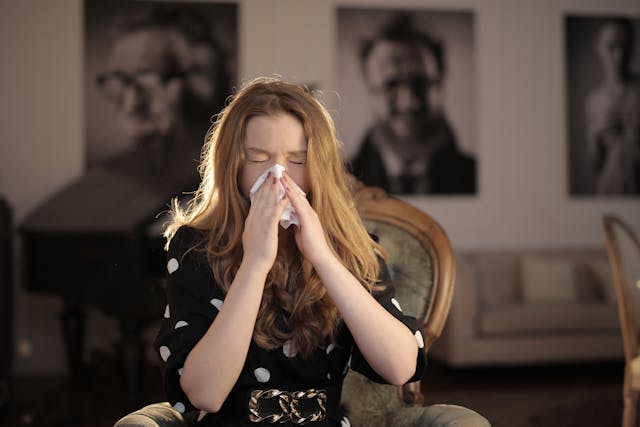
What Causes Allergy and Asthma Symptoms?
Allergies occur when the immune system overreacts to harmless substances such as pollen, pet dander, or dust mites. Asthma, often triggered by allergens or irritants, causes inflammation in the airways, leading to difficulty breathing. Sinusitis, a condition where the sinuses become inflamed, can result from allergies, infections, or structural issues.
Triggers to Watch Out For
- Environmental Allergies: These include seasonal pollen allergies, mold sensitivity, and reactions to indoor dust or pet dander.
- Food Allergies: Reactions to foods like peanuts, shellfish, or dairy can range from mild to life-threatening.
- Sinus Triggers: Bacteria, viruses, or allergens can lead to sinus inflammation and infections.
Managing Symptoms with Modern Treatments
- Allergy Medications: Antihistamines, decongestants, and nasal sprays provide quick relief from allergy symptoms.
- Immunotherapy: Allergy shots or tablets are a long-term solution to reducing sensitivity to allergens.
- Sinus Treatments: Options range from antibiotics for bacterial infections to minimally invasive procedures like balloon sinuplasty.
Tips for Preventing Flare-Ups
Preventive care is essential for managing these conditions effectively. Simple measures such as using air purifiers, avoiding known allergens, and maintaining proper hydration can reduce the frequency and severity of symptoms.
How a Specialist Can Help
Consulting a board-certified NYC allergist is the best way to ensure accurate diagnosis and effective treatment. At Allergy, Asthma and Sinusitis P.C., expert care focuses on using the latest research and techniques to deliver personalized treatment plans.
Common Allergies Symptoms and Treatments: Contact Us Today
Don’t let allergies or asthma hold you back – contact Allergy, Asthma and Sinusitis P.C. today to schedule your consultation.
Allergy, Asthma and Sinusitis P.C
Boyan Hadjiev, MD
30 East 40th Street
New York, NY
212-319-5282
How to Prepare for an Allergy Test
This blog post will guide you through the necessary steps to get ready for your allergy test, from understanding the different types of tests available to managing your medications and lifestyle. When you suspect you may have allergies, an allergy test can provide valuable insights into the specific allergens that trigger your symptoms. To ensure the accuracy and effectiveness of the test, it’s essential to prepare adequately. By following these guidelines, you can maximize the benefits of the test and take control of your allergies.

How to Prepare for an Allergy Test
1. Stop Certain Medications
Consult your allergist about stopping antihistamines and other medications that can interfere with test results. Typically, you should stop taking antihistamines 7-10 days before the test.
2. Discuss Medical History
Provide your allergist with a detailed medical history, including any symptoms, triggers, and past allergic reactions.
3. Avoid Perfumes and Lotions
On the day of the test, avoid using perfumes, lotions, or other skin products that might affect test results.
4. Wear Comfortable Clothing
Wear loose, comfortable clothing that allows easy access to your arms and back, where skin tests are typically performed.
5. Eat Normally
There is usually no need to fast before an allergy test unless instructed otherwise by your doctor.
Preparing for an Allergy Test: Conclusion
Preparing for an allergy test requires careful consideration of various factors, including medications, medical history, skin products, clothing choices, and specific instructions from your allergist. By following these guidelines, you can significantly improve the accuracy and effectiveness of the test, leading to a more accurate diagnosis and effective treatment plan. Remember to communicate openly with your allergist and ask any questions you may have to ensure a successful allergy testing experience.
Are you struggling with allergies? Let Dr. Boyan Hadjiev at Allergy, Asthma and Sinusitis P.C. help. Schedule your appointment today for expert allergy testing and personalized treatment plans.
Allergy, Asthma and Sinusitis P.C
Boyan Hadjiev, MD
30 East 40th Street
New York, NY
212-319-5282
Natural Remedies for Allergy Relief
While modern medicine offers valuable treatments for allergies, many people are turning to natural remedies as a complementary approach. These plant-based options can provide relief from allergy symptoms without the potential side effects of conventional medications. In this blog post, we’ll explore a variety of natural remedies that have been shown to be effective in managing allergies, allowing you to find the best approach for your individual needs.
Natural Remedies for Allergy Relief
1. Local Honey
Consuming local honey may help build immunity to local pollen. Start with a small amount and gradually increase.
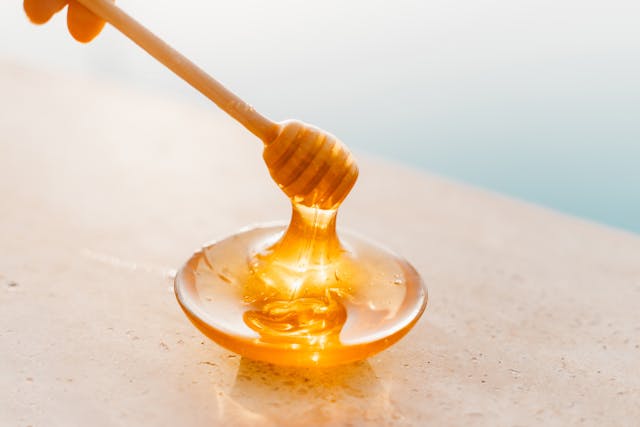
2. Saline Nasal Rinse
Using a saline nasal rinse can help clear out allergens from your nasal passages, reducing congestion and irritation.
3. Quercetin
Quercetin, a natural plant flavonoid, can help stabilize mast cells and prevent the release of histamine. Foods rich in quercetin include apples, berries, and onions.
4. Probiotics
Probiotics can help balance the immune system and reduce the severity of allergic reactions. Yogurt, kefir, and fermented foods are good sources.
5. Butterbur
Butterbur is an herb that has been shown to reduce symptoms of hay fever and other allergic reactions. Look for butterbur supplements labeled “PA-free” to ensure they are free of harmful alkaloids.
6. Stinging Nettle
Stinging nettle has natural anti-inflammatory properties that can help reduce allergy symptoms. It can be taken as a tea, tincture, or supplement.
7. Essential Oils
Certain essential oils, such as peppermint, eucalyptus, and lavender, can help alleviate allergy symptoms. Use them in a diffuser or apply them topically (diluted with a carrier oil).

Natural Remedies for Allergy: Conclusion
While natural remedies can offer a valuable complement to traditional allergy treatments, it’s essential to approach them with caution and seek guidance from a qualified allergist. By understanding the potential benefits and limitations of these options, you can make informed decisions about your allergy management. Remember that a personalized approach, combining natural remedies with conventional treatments as needed, can help you find the optimal solution for your individual needs.
For personalized allergy treatment plans and advice on natural remedies, contact Dr. Boyan Hadjiev at Allergy, Asthma and Sinusitis P.C. Our team is here to help you manage your allergies effectively.
Allergy, Asthma and Sinusitis P.C
Boyan Hadjiev, MD
30 East 40th Street
Suite 1200
New York, NY 10016
212-319-5282
Tips for Living with Severe Allergies
Living with severe allergies can be a daily challenge, but with proactive management, you can significantly improve your quality of life. This blog post offers practical tips to help you minimize exposure to allergens and effectively control symptoms. Whether you suffer from seasonal allergies, food sensitivities, or other allergic conditions, these strategies can make a meaningful difference in your well-being.
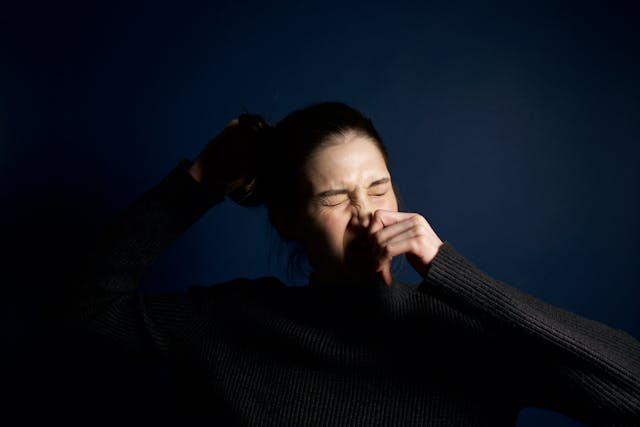
1. Identify and Avoid Triggers
Identify your specific allergens through testing and avoid them whenever possible. This includes food allergens, environmental triggers, and pet dander.
2. Create an Allergy-Free Home
Keep your home clean and allergen-free by using air purifiers, vacuuming regularly with a HEPA filter vacuum, and using hypoallergenic bedding. Control humidity levels to prevent mold growth.
3. Follow a Medication Plan
Work with your allergist to develop a medication plan that includes daily maintenance medications and emergency treatments like epinephrine auto-injectors.
4. Wear a Medical ID
Wear a medical ID bracelet that lists your allergies. This can be crucial in emergencies when you might not be able to communicate.
5. Plan for Eating Out
When dining out, inform the restaurant staff about your allergies and ask detailed questions about food preparation. Consider carrying allergy cards that clearly state your allergies.
6. Regular Medical Checkups
Regular visits to your allergist are important for monitoring your condition and adjusting your treatment plan as needed.
7. Emergency Preparedness
Always have an emergency action plan in place, including knowing the location of the nearest hospital and having quick access to emergency medications.
Tips for Living with Severe Allergies: Conclusion
While living with severe allergies can be demanding, remember that effective management is possible. By following the tips outlined in this blog post, you can take control of your symptoms, reduce exposure to allergens, and enjoy a higher quality of life. Remember to consult with a healthcare professional for personalized advice and support. With the right strategies in place, you can thrive despite your allergies.
For personalized advice and comprehensive allergy management, contact Dr. Boyan Hadjiev at Allergy, Asthma and Sinusitis P.C. Our dedicated team is here to help you live comfortably with severe allergies.
Contact Information
Allergy, Asthma and Sinusitis P.C
Boyan Hadjiev, MD
30 East 40th Street
New York, NY 10016
212-319-5282
Understanding Food Allergies
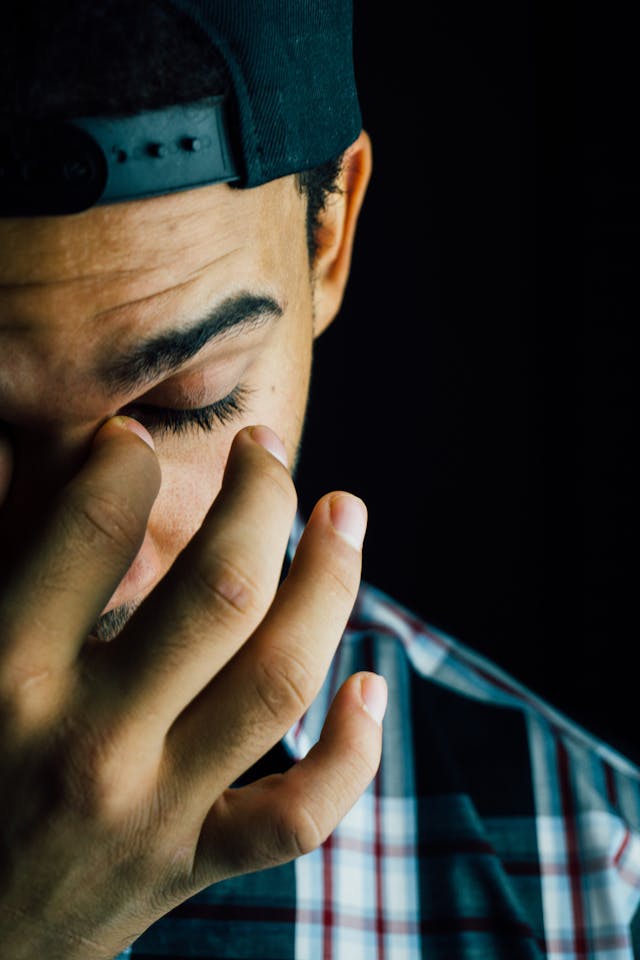 Food allergies are immune system responses to certain foods that the body mistakenly identifies as harmful. These reactions can range from mild to severe and can affect various parts of the body. Here’s what you need to know:
Food allergies are immune system responses to certain foods that the body mistakenly identifies as harmful. These reactions can range from mild to severe and can affect various parts of the body. Here’s what you need to know:
Understanding Food Allergies
1. Common Allergens
The most common food allergens, often referred to as the “Big Eight,” include milk, eggs, peanuts, tree nuts, soy, wheat, fish, and shellfish. These foods account for the majority of allergic reactions.
2. Symptoms
Symptoms of food allergies can vary widely and may include hives, swelling, stomach pain, vomiting, diarrhea, respiratory issues, and anaphylaxis—a severe, potentially life-threatening reaction. Symptoms usually appear within minutes to a few hours after consuming the allergen.
3. Diagnosis
Diagnosing food allergies typically involves a combination of medical history, dietary review, skin prick tests, blood tests, and oral food challenges. An allergist will evaluate these results to confirm the allergy.
4. Managing Food Allergies
The primary way to manage food allergies is strict avoidance of the allergen. This requires careful reading of food labels, awareness of cross-contamination risks, and clear communication with restaurants and food preparers. In case of accidental exposure, individuals should have an emergency action plan, which includes carrying epinephrine auto-injectors.
5. Living with Food Allergies
Living with food allergies involves being proactive and prepared. It’s important to educate family, friends, and caregivers about the allergy and how to recognize and respond to symptoms. Joining support groups and staying informed about new treatments and research can also help.
Understanding Food Allergies: Conclusion
Understanding and managing food allergies is crucial for ensuring safety and maintaining quality of life. By knowing common allergens, recognizing symptoms, and having a solid management plan, individuals with food allergies can effectively navigate their daily lives.
For comprehensive food allergy diagnosis and management, contact Dr. Boyan Hadjiev at Allergy, Asthma and Sinusitis P.C. Our team is committed to providing expert care and personalized treatment plans.
Boyan Hadjiev, MD
212-319-5282
Latest Research on Allergy Treatments
What is the latest research on allergy treatments? Advancements in allergy treatments are continually emerging, providing hope for more effective management of allergies. Here are some of the latest developments:
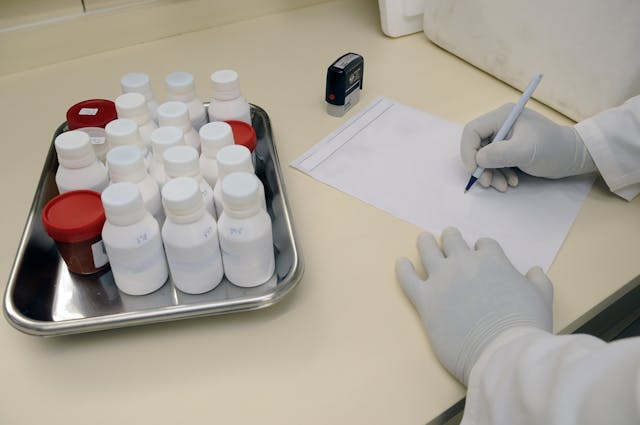
1. Biologic Therapies
Biologic therapies, such as monoclonal antibodies, target specific components of the immune system involved in allergic reactions. Omalizumab (Xolair) is a biologic used to treat asthma and chronic idiopathic urticaria (hives). It works by binding to immunoglobulin E (IgE) antibodies, preventing them from triggering allergic responses.
2. Sublingual Immunotherapy (SLIT)
SLIT, a method of allergy immunotherapy, involves placing allergen tablets or drops under the tongue. It has been shown to be effective for treating grass, ragweed, and dust mite allergies. Research is ongoing to expand its use to other allergens.
3. Oral Immunotherapy (OIT)
OIT involves consuming gradually increasing amounts of an allergen under medical supervision. This method is primarily used for food allergies, such as peanut and egg allergies, with the goal of increasing tolerance and reducing the severity of allergic reactions.
4. New Allergy Medications
Researchers are developing new medications that target specific pathways involved in allergic reactions. For example, Fevipiprant is an investigational drug that inhibits a specific receptor involved in asthma and other allergic conditions, showing promise in clinical trials.
5. Gene Therapy
Gene therapy is an emerging field that aims to modify or replace defective genes responsible for allergic responses. While still in the experimental stages, gene therapy holds potential for long-term solutions to allergies.
6. Probiotics and Microbiome Research
Studies are exploring the role of the gut microbiome in allergies. Probiotics, which are beneficial bacteria, may help modulate the immune system and reduce allergic responses. Ongoing research aims to identify specific probiotics that could be used as part of allergy treatment.
7. Epigenetics
Epigenetic research is investigating how environmental factors can influence gene expression related to allergies. Understanding these mechanisms could lead to new prevention and treatment strategies.
8. Allergen-Specific Immunotherapy Vaccines
Scientists are developing allergen-specific vaccines that could provide long-lasting protection against allergies. These vaccines aim to induce tolerance to specific allergens, reducing the need for ongoing treatment.
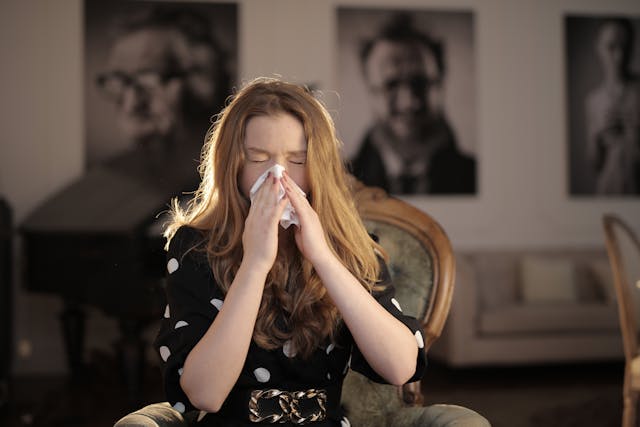
Latest Research on Allergy Treatments: Conclusion
The latest research in allergy treatments offers promising advancements in managing and potentially curing allergies. From biologic therapies and immunotherapy to gene therapy and microbiome research, these innovations provide new hope for individuals suffering from allergies.
For expert advice and the latest treatments in allergy management, contact “Dr. Sneeze”, Dr. Boyan Hadjiev at Allergy, Asthma and Sinusitis P.C. in New York City. Dr. Hadjiev and his team are dedicated to providing cutting-edge allergy care tailored to your needs.
Allergy, Asthma and Sinusitis P.C
Boyan Hadjiev, MD
30 East 40th Street
Suite 1200
New York, NY 10016
212-319-5282
Common Misconceptions About Allergies
 Allergies can be a frustrating and sometimes debilitating condition. Despite their prevalence, many common misconceptions about allergies persist. From confusing allergies with sensitivities, to believing they’re just a minor annoyance, these misunderstandings can lead to ineffective treatment and unnecessary discomfort. Let’s debunk some of the most common myths surrounding allergies and explore the truth about this widespread health issue.
Allergies can be a frustrating and sometimes debilitating condition. Despite their prevalence, many common misconceptions about allergies persist. From confusing allergies with sensitivities, to believing they’re just a minor annoyance, these misunderstandings can lead to ineffective treatment and unnecessary discomfort. Let’s debunk some of the most common myths surrounding allergies and explore the truth about this widespread health issue.
Common Misconceptions About Allergies
1. Allergies are Just a Nuisance
Many believe allergies are minor inconveniences, but they can significantly impact quality of life and, in severe cases, be life-threatening.
2. You Can Outgrow Allergies
While some children may outgrow certain food allergies, others, such as peanut or shellfish allergies, often persist into adulthood.
3. Hypoallergenic Pets Don’t Cause Allergies
No pet is entirely hypoallergenic. All pets produce dander, saliva, and urine, which can trigger allergies.
4. Moving to a New Location Can Cure Allergies
Moving might provide temporary relief, but allergens are prevalent everywhere. New environmental allergens might replace the old ones.
5. Allergies and Colds Are the Same
Allergies and colds share symptoms but have different causes. Allergies result from immune responses to allergens, while colds are viral infections.
6. Natural Remedies Are Always Safe
Natural doesn’t always mean safe. Some herbal treatments can interact with medications or cause allergic reactions themselves.
Common Misconceptions About Allergies: Conclusion
Understanding these misconceptions helps in managing allergies effectively. Educating yourself and seeking professional advice is crucial for accurate diagnosis and treatment.
For reliable information and expert allergy care, contact Dr. Boyan Hadjiev at Allergy, Asthma and Sinusitis P.C. in NYC. Our team provides comprehensive allergy management and treatment plans.
Allergy, Asthma and Sinusitis P.C. | Boyan Hadjiev, MD
212-319-5282
The Role of Immunotherapy in Allergy Treatment
What is the role of immunotherapy in allergy treatment? Immunotherapy is a transformative treatment for individuals suffering from allergies, particularly those who do not find relief with conventional medications. This treatment involves gradually exposing patients to increasing doses of allergens, aiming to build their tolerance over time.

The Role of Immunotherapy in Allergy Treatment
1. What is Immunotherapy?
Immunotherapy, also known as allergy shots or sublingual immunotherapy, is a long-term treatment designed to decrease sensitivity to allergens. By repeatedly exposing the body to small, controlled amounts of the allergen, the immune system is trained to tolerate it without triggering a severe allergic reaction.
2. Allergy Shots (Subcutaneous Immunotherapy)
Allergy shots are a well-established method of immunotherapy. Patients receive injections containing small amounts of the allergen, initially on a weekly basis. Over time, the dosage is gradually increased, and the frequency of the shots decreases. This treatment is particularly effective for common allergens such as pollen, dust mites, mold, and pet dander. The maintenance phase, where injections are given monthly, can last for several years, leading to long-term relief even after the treatment ends.
3. Sublingual Immunotherapy
Sublingual immunotherapy is an alternative to allergy shots, involving the placement of allergen tablets or drops under the tongue. This method is primarily used for treating allergies to grass, ragweed, and dust mites. It is a convenient option as it can be administered at home, making it easier for patients to maintain consistent treatment. Sublingual immunotherapy is a viable choice for individuals who are averse to needles or prefer a more flexible treatment schedule.
4. Benefits of Immunotherapy
Immunotherapy offers numerous benefits:
- Long-Term Relief: One of the most significant advantages is that it can provide lasting relief from allergy symptoms, even after the treatment is discontinued.
- Symptom Reduction: Patients experience a marked reduction in symptoms such as sneezing, itching, and congestion. This improvement can significantly enhance quality of life, particularly during allergy seasons.
- Medication Dependence: With successful immunotherapy, there is often a reduced need for daily allergy medications, which can save costs and reduce side effects associated with long-term medication use.
- Preventive Benefits: In children, immunotherapy has the potential to prevent the development of new allergies and can also reduce the risk of developing asthma.
5. How Immunotherapy Works
The mechanism behind immunotherapy involves desensitizing the immune system to allergens. By introducing the allergen in controlled amounts, the immune system is trained to become less reactive. Over time, the body’s response to the allergen becomes less severe, which helps in reducing the symptoms experienced during natural exposure. This gradual process is carefully monitored by an allergist to ensure safety and effectiveness.
6. Side Effects and Risks
While immunotherapy is generally safe, it does come with some risks. Common side effects include localized reactions at the injection site, such as swelling and redness, or oral itching and discomfort for sublingual methods. These side effects are usually mild and temporary. However, there is a risk of severe allergic reactions, including anaphylaxis, which is why it’s crucial to start this treatment under the supervision of an allergist. Patients are monitored for a short period after each injection to manage any immediate reactions.
The Role of Immunotherapy in Allergy Treatment: Conclusion
Immunotherapy stands out as a promising solution for long-term allergy relief. By building tolerance to allergens, it helps reduce symptoms and improve the overall quality of life for allergy sufferers. It’s a proactive approach that not only alleviates current symptoms but also provides preventive benefits.
For personalized advice and effective immunotherapy treatment plans, contact Dr. Boyan Hadjiev at Allergy, Asthma and Sinusitis P.C. Our dedicated team is here to help you manage and overcome your allergies.
Contact Information:
Allergy, Asthma and Sinusitis P.C
Boyan Hadjiev, MD
30 East 40th Street
Suite 1200
New York, NY 10016
212-319-5282
Allergy-Friendly Home Improvements
 Creating an allergy-friendly home can significantly reduce symptoms and improve quality of life. Here are some practical home improvements to help reduce exposure to common allergic triggers.
Creating an allergy-friendly home can significantly reduce symptoms and improve quality of life. Here are some practical home improvements to help reduce exposure to common allergic triggers.
Allergy-Friendly Home Improvements
1. Install High-Efficiency Air Filters
Use HEPA filters in your HVAC system to capture airborne allergens like pollen, dust, and pet dander. Replace filters regularly for optimal performance.
2. Use Hypoallergenic Bedding
Opt for hypoallergenic mattress covers, pillows, and bedding to reduce dust mites and other allergens. Wash bedding in hot water weekly to kill dust mites.
3. Choose Hard Flooring
Replace carpets with hard flooring options such as hardwood, tile, or laminate. Hard surfaces are easier to clean and don’t trap allergens like carpets do.
4. Use Low-VOC Paints
Choose low-VOC (volatile organic compounds) paints to reduce exposure to chemicals that can trigger allergies and asthma. These paints are available in a variety of colors and finishes.
5. Control Humidity Levels
Maintain indoor humidity levels between 30-50% using dehumidifiers or air conditioners. This prevents mold growth and reduces dust mites.
6. Install Ventilation Fans
Install exhaust fans in kitchens and bathrooms to reduce moisture and prevent mold growth. Proper ventilation also helps remove cooking fumes and other irritants.
7. Choose Allergy-Friendly Furniture
Opt for leather, vinyl, or other non-fabric furniture that can be easily wiped down. Avoid upholstered furniture that can harbor allergens.
8. Remove Clutter
Keep your home free of clutter to minimize dust accumulation. Use storage solutions to keep items organized and off the floor.
9. Regular Cleaning
Vacuum regularly with a HEPA-filter vacuum and dust surfaces with a damp cloth. Clean areas prone to mold, such as bathrooms and basements, frequently.
10. Use Green Cleaning Products
Choose non-toxic, fragrance-free cleaning products to avoid chemical irritants that can trigger allergies. Natural cleaning solutions like vinegar and baking soda can be effective and safe.
Allergy-Friendly Home Improvements: Conclusion
Implementing these allergy-friendly home improvements can create a healthier living environment and help reduce allergy symptoms.
For expert advice on allergy management and creating an allergy-friendly home, contact Dr. Boyan Hadjiev at Allergy, Asthma and Sinusitis P.C. Our team is dedicated to helping you achieve a healthier home.
Boyan Hadjiev, MD
212-319-5282
Travel Tips for Allergy Sufferers
What are some good travel tips for allergy sufferers? Traveling with allergies can be challenging, but with careful planning, you can enjoy your trip without discomfort. Here are some tips.

Travel Tips for Allergy Sufferers
1. Plan Ahead
Research your destination for potential allergens, such as pollen counts, local foods, and accommodations. Choose allergy-friendly hotels and destinations when possible.
2. Pack Allergy Essentials
Bring necessary medications, including antihistamines, nasal sprays, and epinephrine auto-injectors. Pack these in your carry-on for easy access.
3. Inform Your Travel Companions
Let your travel companions know about your allergies so they can help you avoid allergens and assist in case of an emergency.
4. Use Air Purifiers
If you’re staying in a hotel, consider bringing a portable air purifier to reduce allergens in your room. Some hotels also offer allergy-friendly rooms equipped with air purifiers and hypoallergenic bedding.
5. Be Cautious with Food
When traveling internationally, learn how to communicate your food allergies in the local language. Carry allergy cards that list your allergens and necessary precautions in the local language. Always inform restaurant staff about your allergies and choose dishes that are less likely to contain allergens.
6. Avoid Peak Allergy Seasons
If possible, plan your trips during seasons when allergens are lower. This can reduce your exposure and help you enjoy your travels more comfortably.
7. Keep Your Environment Clean
Wipe down surfaces in your accommodation and rental car to remove dust and allergens. Use hypoallergenic bedding and avoid feather pillows or comforters.
8. Stay Hydrated
Drink plenty of water to stay hydrated, as this can help alleviate some allergy symptoms. Avoid caffeinated and alcoholic beverages that can dehydrate you.
9. Manage Stress
Travel can be stressful, which can exacerbate allergy symptoms. Practice stress-relief techniques such as deep breathing, meditation, or gentle exercise.
10. Emergency Plan
Have a clear emergency plan in place. Know where the nearest medical facilities are, carry a medical ID, and ensure you have travel insurance that covers allergy-related emergencies.
Travel Tips for Allergy Sufferers: Conclusion
With the right preparation and precautions, you can manage your allergies effectively while traveling and enjoy a stress-free trip.
For personalized allergy management and travel advice, contact Dr. Boyan Hadjiev at Allergy, Asthma and Sinusitis P.C. Our team is here to help you travel safely and comfortably.
Dealing with Pet Allergies
 How can pet owners go about dealing with pet allergies? Pet allergies can be challenging, especially for animal lovers. Here are some effective strategies to manage them.
How can pet owners go about dealing with pet allergies? Pet allergies can be challenging, especially for animal lovers. Here are some effective strategies to manage them.
Ideas for Dealing with Pet Allergies
1. Create Pet-Free Zones
Designate certain areas of your home as pet-free, such as bedrooms, to reduce allergen exposure. This ensures you have a space to retreat to when symptoms flare up.
2. Bathe and Groom Pets Regularly
Frequent bathing and grooming can reduce the amount of dander (dead skin flakes) pets shed. Use hypoallergenic pet shampoos and consider professional grooming services.
3. Clean and Vacuum Frequently
Regularly clean and vacuum your home, focusing on areas where your pet spends time. Use a vacuum with a HEPA filter to capture small allergen particles effectively.
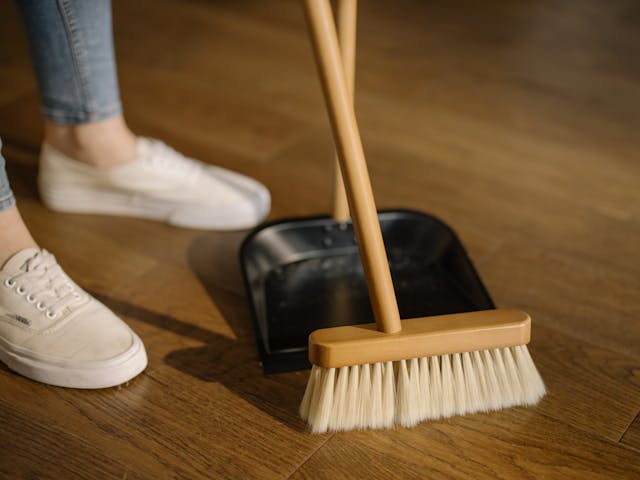
4. Use HEPA Air Purifiers
HEPA air purifiers can help remove pet allergens from the air. Place them in common areas and bedrooms to improve air quality.
5. Wash Pet Bedding and Toys
Frequently wash your pet’s bedding, toys, and other items in hot water to reduce allergen buildup. This helps minimize the spread of dander throughout your home.
6. Allergy-Friendly Furnishings
Choose furnishings that are easy to clean, such as leather or vinyl, instead of fabric-covered furniture. This reduces the amount of dander that can accumulate.
7. Allergy Medications
Consult with an allergist to discuss appropriate medications. Antihistamines, decongestants, and nasal sprays can help manage symptoms. In some cases, allergy shots (immunotherapy) may be recommended for long-term relief.
8. Personal Hygiene
Wash your hands after petting or playing with your pet to prevent transferring allergens to your face. This can help reduce allergy symptoms.
9. Limit Carpet Use
Carpets can trap pet dander and other allergens. Opt for hard flooring options like tile, hardwood, or laminate, which are easier to clean and less likely to harbor allergens.
10. Consider Allergy-Friendly Pets
If you’re considering getting a new pet, look for breeds that are known to be more allergy-friendly, such as certain dog and cat breeds that produce fewer allergens.
Dealing with Pet Allergies: Conclusion
Managing pet allergies involves a combination of regular cleaning, proper pet care, and medical treatment. By implementing these strategies, you can reduce allergy symptoms and enjoy the companionship of your pet.
For personalized advice and effective allergy management, contact Dr. Boyan Hadjiev at Allergy, Asthma and Sinusitis P.C. in NYC. Our team is dedicated to helping you live comfortably with your pet.
Managing Seasonal Allergies in NYC
 What are the best strategies for managing seasonal allergies in NYC? Seasonal allergies can be challenging, especially in a bustling city like New York. Here are some tips to manage them effectively.
What are the best strategies for managing seasonal allergies in NYC? Seasonal allergies can be challenging, especially in a bustling city like New York. Here are some tips to manage them effectively.
Managing Seasonal Allergies in NYC
1. Monitor Pollen Levels
Stay informed about daily pollen counts. Websites and apps provide updates that can help you plan outdoor activities accordingly. On high-pollen days, try to stay indoors as much as possible.
2. Keep Windows Closed
Keep your windows closed during peak allergy season to prevent pollen from entering your home. Use air conditioning to keep your space cool and ventilated without letting allergens in.
3. Use Air Purifiers
Invest in a high-quality air purifier with a HEPA filter to remove allergens from the air inside your home. This can significantly reduce indoor pollen and other airborne irritants.
4. Shower and Change Clothes
After spending time outdoors, shower and change your clothes to remove pollen that may have settled on you. This helps prevent the spread of allergens throughout your home.
5. Medications and Treatments
Consult with an allergist like Dr. Boyan Hadjiev to discuss appropriate medications and treatments. Over-the-counter antihistamines, nasal sprays, and eye drops can be effective. In more severe cases, prescription medications or allergy shots (immunotherapy) might be necessary.
6. Clean Regularly
Regular cleaning can help reduce allergens in your home. Vacuum frequently with a HEPA filter vacuum, dust surfaces with a damp cloth, and wash bedding in hot water.
7. Wear Sunglasses and Hats
When outdoors, wear sunglasses and a wide-brimmed hat to protect your eyes and face from pollen. This can help reduce symptoms like itchy, watery eyes and sneezing.
8. Limit Outdoor Activities
Try to limit outdoor activities during peak pollen times, typically early morning and late afternoon. Plan indoor activities or exercise at a gym to minimize exposure.
9. Use Saline Nasal Rinses
Saline nasal rinses can help clear pollen and other allergens from your nasal passages. Use a saline spray or a neti pot to rinse your nose after being outdoors.
10. Stay Hydrated and Maintain a Healthy Diet
Staying hydrated and eating a balanced diet can help your body manage allergy symptoms. Foods rich in vitamins and antioxidants, like fruits and vegetables, can boost your immune system.
Managing Seasonal Allergies in NYC:Conclusion:
Managing seasonal allergies in NYC requires a combination of preventative measures and treatments. By monitoring pollen levels, keeping your home clean, and consulting with an allergist, you can reduce symptoms and enjoy a more comfortable allergy season.
For expert advice and personalized allergy management, contact Dr. Boyan Hadjiev at Allergy, Asthma and Sinusitis P.C. Our dedicated team is here to help you navigate allergy season with ease.
Allergy, Asthma and Sinusitis P.C
Boyan Hadjiev, MD
30 East 40th Street
Suite 1200
New York, NY 10016
212-319-5282
Allergies and Sleep: How to Get a Good Night’s Rest
What are some good ways to manage allergies and Sleep? Sleep is essential for our well-being, but allergies can turn a peaceful night’s rest into a miserable ordeal. From seasonal allergies to city living, allergens are prevalent and ensuring quality sleep can be a challenge. Keep reading for expert advice on how to get a good night’s sleep despite allergies.

The Impact of Allergies on Sleep
Allergies can disrupt your sleep in several ways:
1. Nasal Congestion
Allergic rhinitis (hay fever) can lead to a stuffy or runny nose, making it difficult to breathe through your nose while sleeping.
2. Sneezing and Coughing
Allergic reactions can cause frequent sneezing and coughing, further disrupting your sleep cycle.
3. Itchy Eyes and Throat
Itchy eyes and throat can be irritating, making it hard to relax and fall asleep.
4. Restless Nights
Sleep disturbances due to allergies can lead to fragmented sleep, leaving you feeling fatigued and groggy during the day.
Tips for Getting a Good Night’s Sleep with Allergies
Top NYC allergist Boyan Hadjiev, MD aka “Dr. Sneeze” recommends the following strategies to improve your sleep quality:
1. Allergen-Proof Your Bedroom
- Use hypoallergenic pillow and mattress covers to limit exposure to dust mites and pet dander.
- Wash bedding, including sheets and pillowcases, in hot water at least once a week.
- Keep windows closed during high pollen seasons to prevent outdoor allergens from entering your bedroom.
2. Maintain a Clean Bedroom
- Regularly vacuum carpets and rugs with a vacuum cleaner equipped with a HEPA filter to trap allergens.
- Dust and wipe down surfaces with a damp cloth to prevent allergen accumulation.
- Consider removing carpeting, which can harbor allergens, and opt for hardwood or tile floors.
3. Shower Before Bed
Taking a shower before bedtime can help wash away pollen and other allergens from your skin and hair, reducing the risk of allergen transfer to your bedding.
4. Use Air Purifiers
Invest in high-efficiency particulate air (HEPA) air purifiers for your bedroom to help remove allergens from the air.
5. Medications and Allergy Treatment
Consult with Dr. Sneeze about appropriate allergy medications to manage your symptoms. Allergy treatments, including immunotherapy (allergy shots), may provide long-term relief.
Allergies and Sleep: Contact NYC’s Top Allergist
If allergies are interfering with your sleep in the city that never sleeps, it’s time to seek expert guidance from Boyan Hadjiev, MD. You can contact his practice for an appointment at:
Allergy, Asthma and Sinusitis P.C
Boyan Hadjiev, MD
30 East 40th Street
Suite 1200
New York, NY 10016
212-319-5282
Dr. Sneeze is dedicated to helping NYC residents enjoy a good night’s sleep. Schedule an appointment today and take the first step toward restful, allergy-free nights with the support of NYC’s top allergist.
Managing Allergies at Work in NYC
What are some expert tips on managing allergies at work? The workday in New York City can be demanding, and allergies can add an extra layer of stress and discomfort to your professional life. Keep reading to learn some ways to help manage allergies in NYC and other large cities.

The Challenges of Allergies in the Workplace
Allergies can pose unique challenges at work, including:
1. Indoor Allergens
Office environments can harbor indoor allergens like dust mites, mold spores, and pet dander, triggering allergy symptoms for susceptible individuals.
2. Commute Allergens
The journey to work in NYC can expose you to outdoor allergens like pollen, pollution, and exhaust fumes, exacerbating your symptoms.
3. Stress and Allergies
Stress, common in the workplace, can worsen allergy symptoms as it can weaken your immune system and make you more sensitive to allergens.
Tips for Managing Allergies at Work
The following strategies can help you effectively manage allergies while at work:
1. Communicate with Your Employer
- Inform your employer about your allergies and any specific triggers in the workplace.
- Request accommodations if needed, such as a clean and allergen-friendly workspace.
2. Keep Your Workspace Clean
- Regularly clean your desk, computer, and other personal items to reduce indoor allergen exposure.
- Use a HEPA air purifier in your workspace to help filter out allergens.
3. Allergen-Proof Your Workspace
- Consider using allergen-proof covers for your chair and keyboard to limit allergen accumulation.
- Keep personal items like coats and bags off the floor to avoid contact with potential allergens.
4. Allergy Medications
- Take allergy medications as prescribed by a qualified doctor or allergist to keep symptoms in check.
- Keep spare medication at work in case you forget to take it before leaving home.
5. Outdoor Allergen Management
- If you have outdoor allergies, use a saline nasal spray after your commute to help remove allergens from your nasal passages.
- Change your clothes and wash your face and hands when you arrive at work to minimize allergen exposure.
6. Stress Reduction
Practice stress-reduction techniques, such as deep breathing exercises or mindfulness meditation, to help manage stress-related allergy symptoms.
Contact NYC’s Leading Allergist
Don’t let allergies hinder your professional success in the vibrant city of New York. Boyan Hadjiev, MD, “Dr. Sneeze,” is dedicated to helping NYC professionals effectively manage allergies at work. You can contact his practice for an appointment at:
Allergy, Asthma and Sinusitis P.C
Boyan Hadjiev, MD
30 East 40th Street
Suite 1200
New York, NY 10016
212-319-5282
NYC Allergist Survival Guide: Living with Allergies in the Big Apple
Here you can read with a comprehensive NYC allergist survival guide to help you thrive in the big city while keeping your allergies in check. New York City is a vibrant and exciting place to live, but it also comes with unique challenges for allergy sufferers. With allergens lurking around every corner, managing allergies in the Big Apple can be a daunting task.

NYC Allergist Survival Guide
Identifying Common Allergens in NYC
NYC residents are exposed to a variety of allergens, including:
1. Pollen
- Trees: Springtime in NYC can be beautiful, but it also brings tree pollen allergies.
- Grasses: Grass pollen is prevalent in the late spring and early summer.
- Weeds: Ragweed, a common weed in the city, releases allergenic pollen in the late summer and fall.
2. Indoor Allergens
- Dust Mites: Dust mites thrive in the city’s apartments and homes, particularly in bedding and upholstered furniture.
- Mold: Mold spores can grow in damp environments, such as bathrooms and basements.
- Pet Dander: NYC’s pet-friendly culture means that pet dander can be a common indoor allergen.
3. Pollution
The city’s traffic and urban environment contribute to air pollution, which can exacerbate allergy symptoms.
Survival Tips for Allergy Sufferers in NYC
Dr. Sneeze offers the following expert tips to help you live comfortably with allergies in the Big Apple:
1. Allergen-Proof Your Home
Use allergen-proof covers for pillows and mattresses to reduce exposure to dust mites.
Keep windows closed during high pollen seasons and use air conditioning with HEPA filters.
2. Regular Cleaning
Vacuum regularly using a vacuum cleaner equipped with a HEPA filter to trap allergens.
Dust and wipe down surfaces with a damp cloth to minimize indoor allergen accumulation.
3. Pollen Tracking
Monitor pollen counts in your area and stay indoors on high pollen days.
Shower and change clothes after outdoor activities to remove pollen from your body and clothing.
4. Medication Management
Follow your prescribed allergy medication regimen diligently to control symptoms. Consult with an experienced allergist for personalized recommendations on allergy medications.
5. Allergen Avoidance
Consider allergen immunotherapy (allergy shots) for long-term relief and reduced sensitivity to allergens.
6. Stress Reduction
Manage stress through relaxation techniques like meditation and deep breathing exercises, as stress can exacerbate allergy symptoms.

NYC Allergist Survival Guide: Contact NYC’s Trusted Allergist
For comprehensive allergy management and expert guidance on living with allergies in the city that never sleeps, reach out to Dr. Boyan Hadjiev, MD, NYC’s top allergist. You can contact his practice for an appointment at:
Allergy, Asthma and Sinusitis P.C
Boyan Hadjiev, MD
30 East 40th Street
Suite 1200
New York, NY 10016
212-319-5282
With the support and expertise of NYC’s trusted allergist, you can enjoy all that the Big Apple has to offer while keeping your allergies under control. Schedule an appointment today and take the first step toward a healthier, symptom-free life in NYC.
Allergies and Skin Conditions: NYC Allergist Solutions
Do you want to learn more about allergies and skin conditions? Allergies don’t just stop at sneezing and watery eyes; they can also wreak havoc on your skin. In the bustling urban environment of New York City, where allergens are abundant, skin conditions related to allergies are more common than you might think.

The Connection Between Allergies and Skin Conditions
Allergies can trigger or exacerbate a range of skin conditions, including:
1. Eczema (Atopic Dermatitis)
Eczema is a chronic skin condition characterized by itchy, inflamed skin. Allergens like pollen, dust mites, pet dander, and certain foods can trigger eczema flare-ups in sensitive individuals.
2. Hives (Urticaria)
Hives are itchy, raised welts on the skin that can appear suddenly and often occur as an allergic reaction to foods, medications, insect stings, or environmental allergens.
3. Contact Dermatitis
Contact dermatitis occurs when the skin comes into direct contact with an allergen, such as certain metals, fragrances, or plants. It results in redness, itching, and sometimes blisters at the site of contact.
Solutions for Allergy-Related Skin Conditions
Allergists offer comprehensive solutions to address allergies and related skin conditions:
1. Accurate Allergy Testing
Accurate diagnosis is the first step to managing allergies and skin conditions. Allergists utilize advanced allergy testing methods, including skin prick tests and blood tests, to identify the specific allergens triggering your skin symptoms.
2. Allergen Avoidance
Once allergens are identified, your doctor provides practical guidance on allergen avoidance strategies. This may include dietary restrictions, environmental controls, and lifestyle adjustments to reduce allergen exposure.
3. Medication Management
Allergy-related skin conditions can often be managed with medications such as antihistamines and topical corticosteroids. Your allergist will prescribe the most appropriate medications to relieve your symptoms.
4. Immunotherapy (Allergy Shots)
For long-term relief, immunotherapy, commonly known as allergy shots, may be recommended. Immunotherapy gradually desensitizes your immune system to specific allergens, reducing your body’s overreaction to them and lessening skin reactions.
Allergies and Skin Conditions: Contact NYC’s Top Allergist
Dr. Boyan Hadjiev is dedicated to helping NYC residents find relief from allergies and related skin issues. Schedule an appointment today and take the first step toward healthier, itch-free skin with the support of NYC’s top allergist.
Allergy, Asthma and Sinusitis P.C
Boyan Hadjiev, MD
30 East 40th Street
Suite 1200
New York, NY 10016
212-319-5282
Allergy Shots vs. Allergy Drops: Which Treatment Is Right for You in NYC?
Dr. Boyan Hadjiev, a top allergist in NYC, offers expert guidance on two common allergy treatment options: allergy shots vs allergy drops. Discover which one may be the right choice for you. When allergies disrupt your life, seeking the right treatment becomes essential for relief and improved quality of life. In New York City, where allergens abound, making the right choice can significantly impact your well-being.

Allergy Shots (Immunotherapy)
How They Work
Allergy shots, also known as allergen immunotherapy, involve injecting small, gradually increasing amounts of allergens (such as pollen, dust mites, or pet dander) under your skin. This exposure helps your immune system become less sensitive to the allergens over time, reducing allergic reactions.
Benefits
Long-lasting Relief: Allergy shots can provide long-term symptom relief, potentially even curing allergies in some cases.
Effective for Severe Allergies: They are particularly effective for individuals with severe allergies that don’t respond well to medications.
Considerations
Time-Consuming: Allergy shots require regular visits to the allergist for injections during an initial build-up phase and maintenance phase.
Needle Phobia: If you’re uncomfortable with needles, this may not be the best option for you.
Allergy Drops (Sublingual Immunotherapy)
How They Work
Allergy drops, or sublingual immunotherapy, involve placing allergen extracts under your tongue, where they are absorbed into your bloodstream. Like allergy shots, this helps your immune system become less reactive to allergens over time.
Benefits
Convenience: Allergy drops can be taken at home, reducing the need for frequent clinic visits.
Needle-Free: They are a needle-free option, making them suitable for individuals with needle phobia.
Safe for Children: Allergy drops are a suitable option for children as well.
Considerations
Consistency is Key: You need to take allergy drops consistently as prescribed for the treatment to be effective.
Effectiveness May Vary: Allergy drops may not be as potent as allergy shots, making them more suitable for individuals with milder allergies.

Allergy Shots vs. Allergy Drops: Choosing the Right Treatment
The choice between allergy shots and allergy drops depends on your specific needs and preferences. Dr. Hadjiev can help you make an informed decision based on the severity of your allergies, your lifestyle, and your comfort with needles.
Contact NYC’s Expert Allergist
Dr. Hadjiev specializes in helping NYC residents find the right allergy treatment to improve their quality of life. Schedule an appointment today and take the first step toward allergy relief tailored to your unique needs.
Dr. Boyan Hadjiev
Allergy, Asthma and Sinusitis P.C.
30 East 40th Street, Suite 1200
New York, NY 10016
Call 212-319-5282 or visit https://drsneeze.com for more information.
Serving all of New York City and the Tri State Area including Zip Codes: Top Allergist NYC Midtown, Chelsea and Clinton: 10001, 10011, 10018, 10019, 10020, 10036 | Gramercy Park and Murray Hill: 10010, 10016, 10017, 10022 | Greenwich Village and Soho: 10012, 10013, 10014 | Lower Manhattan: 10004, 10005, 10006, 10007, 10038, 10280 | Lower East Side: 10002, 10003, 10009 | Upper East Side: 10021, 10028, 10044, 10128 | Upper West Side: 10023, 10024, 10025


